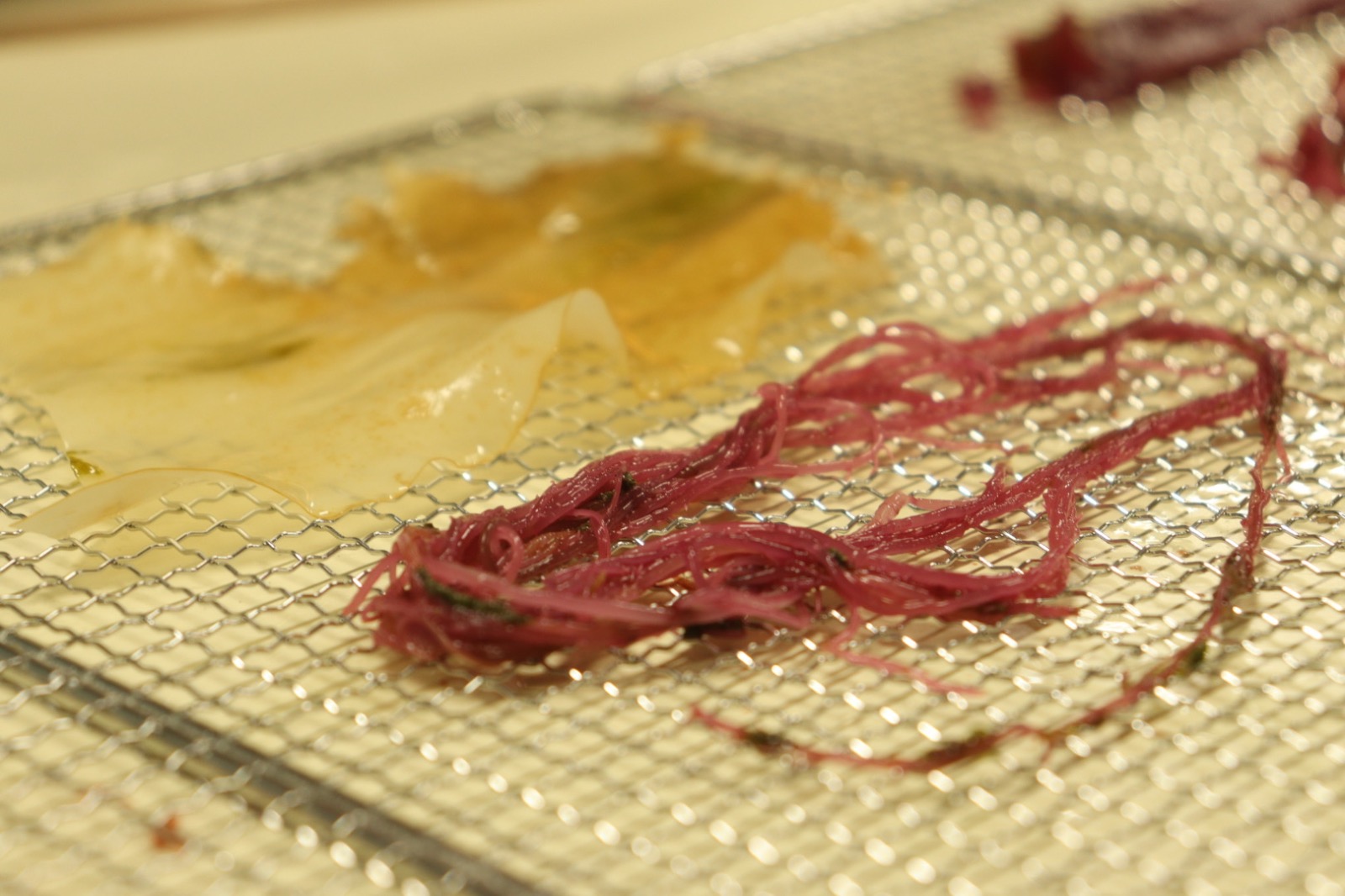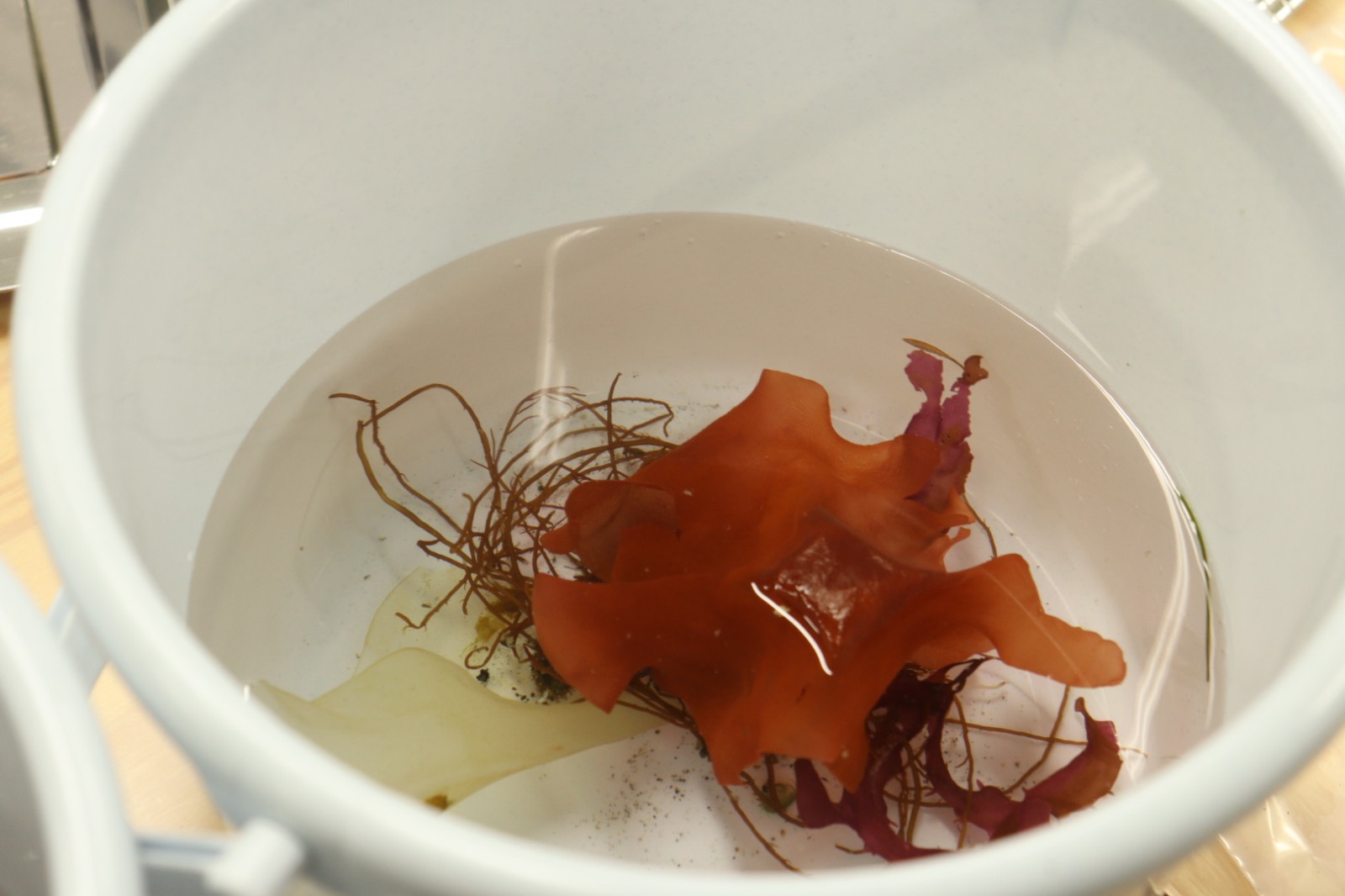
Our project focuses on developing EcoShimenawa, traditional Japanese sacred ropes used in Shinto rituals, by replacing conventional rice straw or synthetic materials with fibers derived from invasive seaweed species (e.g., specific brown or red algae). Invasive seaweed, such as Sargassum muticum or Undaria pinnatifida, poses significant ecological threats by disrupting coastal biodiversity and outcompeting native species. By repurposing this biomass into durable, biodegradable fibers, the initiative addresses dual goals: ecological restoration through resource utilization and cultural preservation by aligning with Shinto principles of natural purity. The seaweed fibers leverage inherent properties like cellulose and alginate, enhanced by natural antimicrobial compounds and UV resistance, which improve durability compared to mold-prone rice straw. The methodology integrates low-tech, craft-based techniques (e.g., traditional rope-twisting, hand-spinning with modified tools) with scientific processing (wet spinning of alginate solutions into calcium chloride baths, alkali treatment for fiber softening) and rigorous material testing. Key evaluations include tensile strength (Universal Testing Machine), climatic stability (humidity/temperature-controlled chambers), and microbial resistance. Expected outcomes include a culturally validated EcoShimenawa prototype and academic insights into sustainable heritage materials, demonstrating that innovation can revitalize tradition while solving environmental crises.

